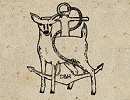Contact Seller
Doe And Hope
Tel07729 213013Please quote Antiques Atlas.


 Outstanding antique Victorian walnut jewellery box
Outstanding antique Victorian walnut jewellery box
 Quality antique William IV rosewood tea caddy
Quality antique William IV rosewood tea caddy
 18th Century Harewood Tea Caddy
18th Century Harewood Tea Caddy
 Rare 18th Century Pressed Wood Snuff Box
Rare 18th Century Pressed Wood Snuff Box
 Fine 19th Century Pressed Maple Snuff Box Titled
Fine 19th Century Pressed Maple Snuff Box Titled
 Fine 18th Century Pressed Maple Snuff Box
Fine 18th Century Pressed Maple Snuff Box
 Victorian Walnut And Brass Mounted Jewellery Box
Victorian Walnut And Brass Mounted Jewellery Box
 Fine Lignum Vitae Table Snuff Box
Fine Lignum Vitae Table Snuff Box
 Antique Victorian burr walnut and brass glove box
Antique Victorian burr walnut and brass glove box
 Tunbridge Tea Caddy
Tunbridge Tea Caddy
 Military Campaign Writing Slope
Military Campaign Writing Slope
 Oak Yorkshire Masonic Deed Chest Coffee Table
Oak Yorkshire Masonic Deed Chest Coffee Table
Non UK callers :
+44 7729 213013
Scarce Oak Shipwright’s Caulking Tool Box c.1880


The black painted English oak shipwrights caulking box, displaying an attractive patination to the whole, having the original iron carrying ring handle to one flank, the lockable shaped seat top left unpainted to show the wooden grain, opening to reveal a vacant storage space, and stamped ‘G.F. JACKMAN’ twice to one side, survives from Victorian period England.
The condition of the box is very good, and remains in exactly the condition as when it was made, barring wear to the paint commensurate with age with gives it a good decorative appearance. The wear is to be found in all of the right places such as the ring handle area, and the chain abrasion to the front where the chain would have rubbed the paintwork when it was attached to the iron ring. The original lock is in place but the key is absent. The fact that is stamped is a nice touch and it could be further researched in this regard.
Caulking refers to the method used to make wooden decks on ships watertight, and involves a variety of unique tools. Strands of oakum, a fibrous material derived from jute, are driven between the wedge-shaped joins between the timbers and then covered with tar or pitch to make the deck watertight. This process took a lot of skill – not enough oakum and water could get between the cracks, too much and the planks could split apart. Shipwrights would take great pride in their mallets, and would tell you that a good mallet, property cared for, would not only make work easier, but would be a pleasure to listen to.
Portable caulking boxes like these would have held the shipwright’s most important tools like mallets and irons. The iron ring would have allowed the shipwright to have the box attached to him when working on the sides of the ship so it was accessible at all times, and the curved top allowed him to sit on the box when on deck.
An English shipwright once recalled…
‘The old shipwrights liked to hear the mallet sing the slots caused the singing. All these things were done for a good reason – If several men are caulking on deck together and they used ordinary mallets, they would deafen one another.’
(Dictionary of Woodworking Tools, R. A Salman, 1989 ).
A tactile, attractive and evocative box that could now be used in a variety of ways, and a rare find, too.
SellerDoe And Hope
View all stock from
Doe And Hope

 Private dealer, By appointment only
Private dealer, By appointment only
The Onion Barn, Shoe Cottage,
15 High Street, Blunham,
Bedfordshire, MK44 3NL.
MK44 3NL
Tel : 07729 213013
Non UK callers : +44 7729 213013
Get directions to Doe And Hope
The condition of the box is very good, and remains in exactly the condition as when it was made, barring wear to the paint commensurate with age with gives it a good decorative appearance. The wear is to be found in all of the right places such as the ring handle area, and the chain abrasion to the front where the chain would have rubbed the paintwork when it was attached to the iron ring. The original lock is in place but the key is absent. The fact that is stamped is a nice touch and it could be further researched in this regard.
Caulking refers to the method used to make wooden decks on ships watertight, and involves a variety of unique tools. Strands of oakum, a fibrous material derived from jute, are driven between the wedge-shaped joins between the timbers and then covered with tar or pitch to make the deck watertight. This process took a lot of skill – not enough oakum and water could get between the cracks, too much and the planks could split apart. Shipwrights would take great pride in their mallets, and would tell you that a good mallet, property cared for, would not only make work easier, but would be a pleasure to listen to.
Portable caulking boxes like these would have held the shipwright’s most important tools like mallets and irons. The iron ring would have allowed the shipwright to have the box attached to him when working on the sides of the ship so it was accessible at all times, and the curved top allowed him to sit on the box when on deck.
An English shipwright once recalled…
‘The old shipwrights liked to hear the mallet sing the slots caused the singing. All these things were done for a good reason – If several men are caulking on deck together and they used ordinary mallets, they would deafen one another.’
(Dictionary of Woodworking Tools, R. A Salman, 1989 ).
A tactile, attractive and evocative box that could now be used in a variety of ways, and a rare find, too.
Price The price has been listed in British Pounds.
Conversion rates as of 4/JUN/2025. Euro & Dollar prices will vary and should only be used as a guide.
Always confirm final price with dealer. Phone or visit the website to buy, Free UK shipping.
Category Antique Boxes
Date c.1880-90
Late Victorian Antiques Material Oak
Origin English
Item code as155a1629 / 1679
Status Sold
£320.00 
$434.46 
€380.03 

$

€

Conversion rates as of 4/JUN/2025. Euro & Dollar prices will vary and should only be used as a guide.
Always confirm final price with dealer. Phone or visit the website to buy, Free UK shipping.
View all stock from
Doe And Hope

 Private dealer, By appointment only
Private dealer, By appointment onlyThe Onion Barn, Shoe Cottage,
15 High Street, Blunham,
Bedfordshire, MK44 3NL.
MK44 3NL
Tel : 07729 213013
Non UK callers : +44 7729 213013
Get directions to Doe And Hope
You may also be interested in
 Outstanding antique Victorian walnut jewellery box
Outstanding antique Victorian walnut jewellery box
 Quality antique William IV rosewood tea caddy
Quality antique William IV rosewood tea caddy
 18th Century Harewood Tea Caddy
18th Century Harewood Tea Caddy
 Rare 18th Century Pressed Wood Snuff Box
Rare 18th Century Pressed Wood Snuff Box
 Fine 19th Century Pressed Maple Snuff Box Titled
Fine 19th Century Pressed Maple Snuff Box Titled
 Fine 18th Century Pressed Maple Snuff Box
Fine 18th Century Pressed Maple Snuff Box
 Victorian Walnut And Brass Mounted Jewellery Box
Victorian Walnut And Brass Mounted Jewellery Box
 Fine Lignum Vitae Table Snuff Box
Fine Lignum Vitae Table Snuff Box
 Antique Victorian burr walnut and brass glove box
Antique Victorian burr walnut and brass glove box
 Tunbridge Tea Caddy
Tunbridge Tea Caddy
 Military Campaign Writing Slope
Military Campaign Writing Slope
 Oak Yorkshire Masonic Deed Chest Coffee Table
Oak Yorkshire Masonic Deed Chest Coffee Table







